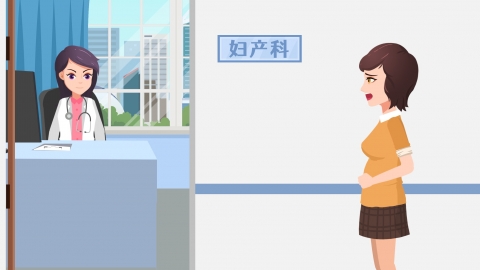What should I do if I have severe toothache during the fourth month of pregnancy?
Generally, severe toothache during the fourth month of pregnancy may be caused by hormonal changes leading to gum sensitivity, inadequate oral hygiene, pregnancy gingivitis, dental caries, or acute pulpitis. Depending on the specific situation, patients can improve symptoms through general management, medication, or surgical treatment. Detailed analysis is as follows:
1. Hormonal Changes Leading to Gum Sensitivity
During pregnancy, elevated estrogen and progesterone levels cause blood vessel expansion in the gums, making them prone to redness, swelling, and pain when irritated. Use a soft-bristled toothbrush to gently brush teeth, rinse with warm salt water after meals, and avoid foods that are cold, hot, sour, sweet, or otherwise irritating. Reduce intake of hard foods.

2. Inadequate Oral Hygiene
If oral cleaning is not performed promptly during pregnancy, food debris can accumulate, causing gum discomfort or worsening of existing cavities. Brush teeth twice daily (morning and night), use dental floss to clean between teeth, choose fluoride-containing toothpaste designed for pregnant women, regularly use an oral irrigator for additional cleaning, and maintain good oral hygiene.
3. Pregnancy Gingivitis
Hormonal fluctuations combined with bacterial infection can lead to gingivitis, characterized by red, swollen gums, bleeding, and severe pain. Under medical guidance, amoxicillin capsules may be taken, and chlorhexidine gluconate mouthwash or hydrogen peroxide solution can be used for local wiping. Mild supragingival scaling may also be performed.
4. Dental Caries
Bacterial erosion of the tooth structure can result in deep caries, which irritates the dental pulp and causes intense pain. For shallow caries, decayed tissue can be removed and filled with glass ionomer cement. If pain is significant, acetaminophen tablets may be taken under medical supervision for relief, with definitive treatment completed after delivery.
5. Acute Pulpitis
An infection of the dental pulp leads to acute inflammation and severe pain. Immediate medical attention is required; emergency pulpotomy and drainage can be performed to relieve pain. Root canal treatment should be postponed until after delivery. If infection is present, cefuroxime axetil tablets may be taken under medical guidance, with complete follow-up treatment scheduled postpartum.
Although the fourth month of pregnancy is generally considered a relatively stable period, managing tooth pain requires extra caution. It is advisable to reduce consumption of sweets and carbonated beverages, rinse the mouth promptly after meals, undergo regular dental checkups (preferably avoiding the sensitive first trimester), maintain emotional stability, and prevent anxiety related to pain from affecting maternal health. Seek timely medical care and adjust treatment plans if any abnormalities occur.




